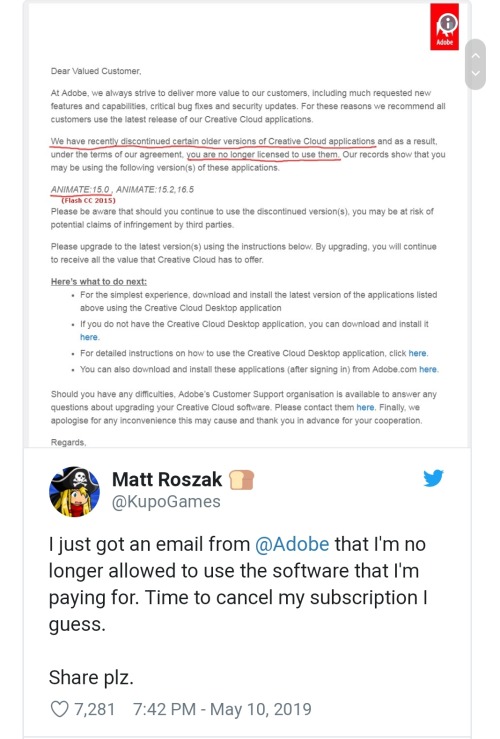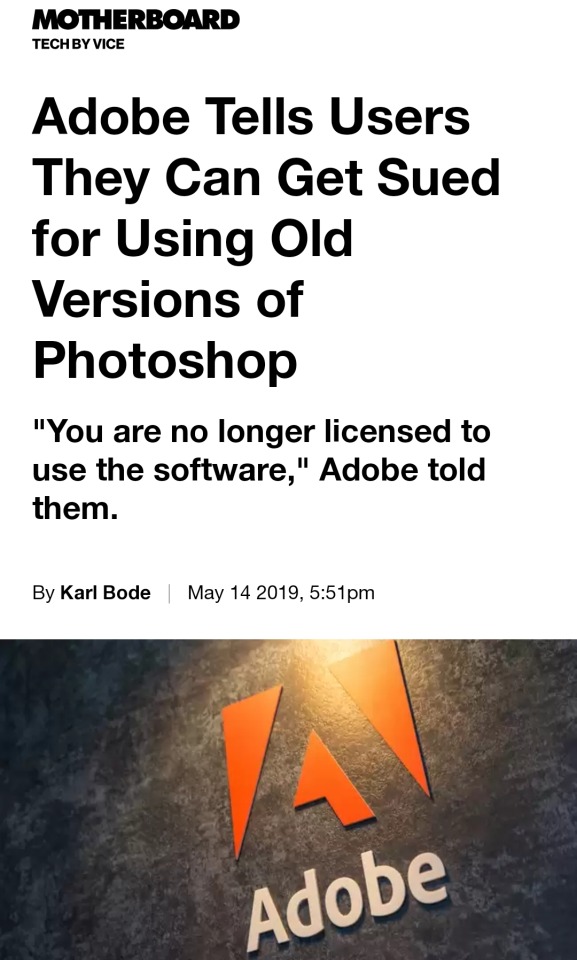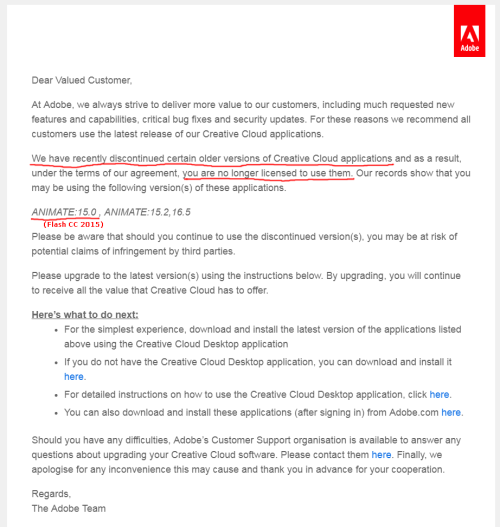
Hoard of your resident sarcastic ace friend. Somewhere between 25 and 250. Asexual/Demisexual, Cis, She/Her/Hers. Posts a lot about: D&D, language learning, LGBT+ content, social justice, and fiber arts. Also cats and books.
870 posts
Practical Advice For If You Want To Start A Podcast
Practical advice for if you want to start a podcast
I wrote a post for the RED team at La Trobe with some general advice for podcasting, but I’ve found there are some recurring questions that I get about setting up a podcast. This post is here to answer those questions.
If you’re not interested in starting a podcast, but want to listen to more linguistics podcasts, I’ve got a list for you!
I last updated this post in August 2020 - if you find this post a few years after this you might want to search for some more up to date specs. I’ll continue to update this from time to time as new questions (or answers) come up.
The length and format of your show are a product of your aims
I personally like shows in the 25-35 minute range. But, having said that, I love Shortwave, which regularly clocks in at 10 minutes, and I’m disappointed when an episode of You’re Wrong About is less than an hour.
Know your audience and the level of depth you want to explore a topic in. The frequency of episodes and the amount of time you have to prepare and edit will also affect how long episode end up. Record a few episodes first and share them with people you trust will give you good feedback.
The best interviews are conversations
Good interviews are just conversations that are intentionally lopsided, and good interviewers make the conversation feel like it’s not lopsided. Do your homework, write out some questions, and then take a step back and actually listen to the person you’re interviewing.
Anyone who has done even a few interviews has already faced most of the questions you first think of. There are some fixes for this: push through your initial brainstorming, think about the specific angles on their topic that are most relevant to your audience and (again) listen to what the person is telling you. Like many podcasting skills, good interviewing takes practice, and you can practice by staying curious about humans you interact with in any area of your life, not just your podcast guests.
Use the best mics you can, but don’t over-invest
You don’t have go and buy the fanciest tech. If you have access to a studio, great! If you don’t, then decide what your budget is. When we started Lingthusiasm, Gretchen recorded into her phone, because we were running the show on no budget and had no idea if we’d stick it out more than 6 months. When we started making money we got Gretchen a Zoom H4n to match mine. It’s still not the fanciest, but it’s rugged and adequate, especially if you make sure you’re in a closet with some blankets. Do I regret the earlier episodes of Lingthusiasm don’t sound amazing? Not as much as I would have regretted investing hundreds of dollars in a podcast that had 4 episodes.
Edit your show
Even a light edit will make the show easier for your audience to listen to, and show respect for the people you interview. I know people believe there’s an aesthetic of authenticity that comes with not editing, but all podcasting is a performance. Editing is a politeness to your audience.
I use audacity to edit
Audacity is free to use. It takes a little longer to learn than something like GarageBand, but once you know how to use it, you’ll be much faster at editing. I appreciate that it has stayed pretty much the same since I started using it almost 15 years ago.
Get your levels right
Once you’ve edited your show, making sure there aren’t too many loud laughs, or your two hosts aren’t unbalanced in loudness. You’ll also need to make sure your podcast isn’t too loud or soft compared to others in people’s list. You need to regularise it. A lot of podcasts regularise to -16 LUFS. A few other numbers bounce around (-14, -18), but this is what we use and no one complains. Audacity can’t do it. You can process a certain number of hours of audio for free each month using the web-based Auphonic. It’s great.
There’s lots of great free music to use
You want to look for music that has a license that’s free to use. Even if you don’t plan to make money from your podcast, make sure the license includes commercial use so you don’t limit your future options. SoundCloud and YouTube have lots of options, as does Kevin MacLeod - who has created royalty-free music in a massive range of genres.
Web hosting is different to getting your show on iTunes
We use SoundCloud to upload and share our audio. It’s fine. I have no complaints. Once you’ve uploaded a few hours of audio you’ll have to pay annually for a pro account. Anchor seems to be a good new competitor, it’s free - I assume they make money off people choosing to run ads on their podcasts. You then generate an RSS feed, which is the thing that points all the podcast players to the place you’ve uploaded your recording. You’ll then have to add your show to major podcast platforms (Apple Podcast, Google Podcast), smaller ones will pick it up from there.
It takes a few days for your show to get picked up on all the podfeeders
Launching a podcast is a bit of a mess - it will go live on your hosting site but then you’ll have to set yourself up with iTunes, Google Podcast etc. and that can take a few days to update and populate. The sites that are popular, and the process of linking into those spaces, changes often enough that you should just google advice when you’re ready to launch, and give yourself a few days. This is part of why some podcasts launch a short ‘episode 0′ or a trailer, it gets the show set up.
Transcripts should be one of the first things you fund
Not every podcast has the time or funds to make transcripts. I do think they’re important though; for people who can’t or don’t want to listen, for discoverability and for your own record when you can’t remember when you talked about a specific story. If you have any time or money and want to be taken seriously at all, this should be one of your earliest priorities. This is even more true for educational podcasts, where a transcript ensures all students can appreciate the content of your show.
You don’t neeeeed a website, but it’s handy
You can run a show using a hosting platform and some social media. Having a website does allow you to add more information about the show and yourself. The Lingthusiasm page has grown over the years as the show has; we made a page for our liveshow events, we provide a list of episodes by topic, information about our Discord community, and our marvelous wall of supporters. The website was much more minimal when we started, but compared to just having a SoundCloud it gave the show room to grow.
You probably want socials, but be selective
You need to make your podcast discoverable by people who are likely to be your audience. Social media is one way to do this, but it’s better to be actually engaging on fewer social platforms than overextend yourself. Focus on platforms that are the intersection of where your possible fans are likely to be and where you enjoy being.
Funding a podcast takes time, and takes work
There are three main revenue streams for podcasts: advertising, crowdfunding and merch. A fourth option is institutional support (through your university or business), but then you’re beholden to the funder. Whichever revenue options work for you, think about them and plan towards them early. Part of that is making sure your podcast gets in as many ears as possible. Most successful podcasts spend as much, if not more, time on marketing, audience engagement and business planning as they do podcasting (it’s just not very glamorous to admit that!).
Seasons are a great structure to keep a podcast manageable
Planning a season with a fixed number of episodes allows you to take some time off, to maybe change some things that weren’t working, or to step away from the project with a podcast that hasn’t been left hanging.
-
 sensicalabsurdities liked this · 3 years ago
sensicalabsurdities liked this · 3 years ago -
 mixxtapej liked this · 3 years ago
mixxtapej liked this · 3 years ago -
 sybilblanchetty liked this · 3 years ago
sybilblanchetty liked this · 3 years ago -
 luckilyblog liked this · 3 years ago
luckilyblog liked this · 3 years ago -
 chaotically-chill liked this · 3 years ago
chaotically-chill liked this · 3 years ago -
 refbin reblogged this · 3 years ago
refbin reblogged this · 3 years ago -
 hanged-man-is-trans liked this · 3 years ago
hanged-man-is-trans liked this · 3 years ago -
 isabelcantread liked this · 3 years ago
isabelcantread liked this · 3 years ago -
 dumpinggroundformylikes reblogged this · 3 years ago
dumpinggroundformylikes reblogged this · 3 years ago -
 perditorian liked this · 3 years ago
perditorian liked this · 3 years ago -
 cresc liked this · 3 years ago
cresc liked this · 3 years ago -
 moontrimmer liked this · 3 years ago
moontrimmer liked this · 3 years ago -
 haiironoaki liked this · 3 years ago
haiironoaki liked this · 3 years ago -
 umeboshi-monologue liked this · 3 years ago
umeboshi-monologue liked this · 3 years ago -
 aibhilin-atibeka reblogged this · 3 years ago
aibhilin-atibeka reblogged this · 3 years ago -
 aibhilin-atibeka liked this · 3 years ago
aibhilin-atibeka liked this · 3 years ago -
 punctusstuff liked this · 3 years ago
punctusstuff liked this · 3 years ago -
 incaseoftimetravel reblogged this · 3 years ago
incaseoftimetravel reblogged this · 3 years ago -
 incaseoftimetravel liked this · 3 years ago
incaseoftimetravel liked this · 3 years ago -
 vees830 liked this · 3 years ago
vees830 liked this · 3 years ago -
 embrace-ce liked this · 3 years ago
embrace-ce liked this · 3 years ago -
 chamisatriy reblogged this · 3 years ago
chamisatriy reblogged this · 3 years ago -
 arsenictangerine liked this · 3 years ago
arsenictangerine liked this · 3 years ago -
 a-kick-drum-heart liked this · 3 years ago
a-kick-drum-heart liked this · 3 years ago -
 bellafuga liked this · 3 years ago
bellafuga liked this · 3 years ago -
 bellafuga reblogged this · 3 years ago
bellafuga reblogged this · 3 years ago -
 youcouldmakeareligionoutofthat liked this · 3 years ago
youcouldmakeareligionoutofthat liked this · 3 years ago -
 superlinguo reblogged this · 3 years ago
superlinguo reblogged this · 3 years ago -
 octoopuff reblogged this · 4 years ago
octoopuff reblogged this · 4 years ago -
 octoopuff liked this · 4 years ago
octoopuff liked this · 4 years ago -
 ickaimp liked this · 4 years ago
ickaimp liked this · 4 years ago -
 lunataspis liked this · 4 years ago
lunataspis liked this · 4 years ago -
 noisesfrombeyondtheuniverse liked this · 4 years ago
noisesfrombeyondtheuniverse liked this · 4 years ago -
 phenyxsnest reblogged this · 4 years ago
phenyxsnest reblogged this · 4 years ago -
 genderqueerbadger reblogged this · 4 years ago
genderqueerbadger reblogged this · 4 years ago -
 genderqueerbadger liked this · 4 years ago
genderqueerbadger liked this · 4 years ago -
 ensrensage liked this · 4 years ago
ensrensage liked this · 4 years ago -
 provenscorpio liked this · 4 years ago
provenscorpio liked this · 4 years ago -
 ptomlins reblogged this · 4 years ago
ptomlins reblogged this · 4 years ago -
 almost-on-a-lark reblogged this · 4 years ago
almost-on-a-lark reblogged this · 4 years ago -
 booksnscience liked this · 4 years ago
booksnscience liked this · 4 years ago -
 beeonastrawberry reblogged this · 4 years ago
beeonastrawberry reblogged this · 4 years ago -
 keno liked this · 4 years ago
keno liked this · 4 years ago -
 dont-even-know-what reblogged this · 4 years ago
dont-even-know-what reblogged this · 4 years ago
More Posts from Sarcasticacefriend
Language Resources Masterpost
Today I am sharing with you guys all my collection of language textbook pdfs :D They are mostly for Russian and Mandarin, but I have a few Korean resources too. Please note that I have not personally used all of these books, so I cannot vouch for their quality. If any of the links are broken, please let me know! All links are to dropbox files.
Mandarin
A Kaleidoscope of China (advanced)
A New China (intermediate)
All Things Considered (advanced)
Anything Goes (advanced)
Basic Chinese (workbook)
Chinese: A Comprehensive Grammar (grammar)
Chinese: An Essential Grammar (grammar)
Modern Mandarin Chinese Grammar (grammar)
Modern Mandarin Chinese Grammar (workbook)
Reading to Write: An Advanced Textbook of Chinese (advanced)
Schaum’s Outlines: Chinese Grammar (grammar)
The Routledge Advanced Chinese Multimedia Course (advanced)
The Routledge Course in Chinese Media Literacy (advanced)
Russian
Ultimate Russian (advanced)
Using Russian: A Guide to Contemporary Usage
A Comprehensive Russian Grammar (grammar)
A Russian Grammar Workbook (workbook)
Colloquial Russian 2 (intermediate)
Russian Verbal Prefixes (grammar)
Glossika Guide to Russian Pronunciation and Grammar
Intermediate Russian: A Grammar and Workbook (intermediate)
An Advanced Russian Tabloid Reader (advanced)
A Living Russian Grammar (grammar)
Basic Russian: A Grammar and Workbook (beginner)
Russian in Exercises (beginner)
Russian Verbs of Motion
Using Russian Vocabulary (vocab)
The Big Silver Book of Russian Verbs (vocab)
Live From Russia Stage 1 Volume 1 (beginner)
Live From Russia Stage 1 Volume 2 (beginner)
Korean
Basic Korean: A Grammar and Workbook (beginner)
Intermediate Korean: A Grammar and Workbook (intermediate)
Korean: A Comprehensive Grammar (grammar)
Korean Grammar in Use (beginner)
Read more here:




“All too often women believe it is a sign of commitment, an expression of love, to endure unkindness or cruelty, to forgive and forget. In actuality, when we love rightly we know that the healthy, loving response to cruelty and abuse is putting ourselves out of harm’s way.”
— bell hooks, all about love

hm they could’ve picked a better screenshot for the thumbnail cause this just looks like our home boy here is about to get rawed by a werewolf
